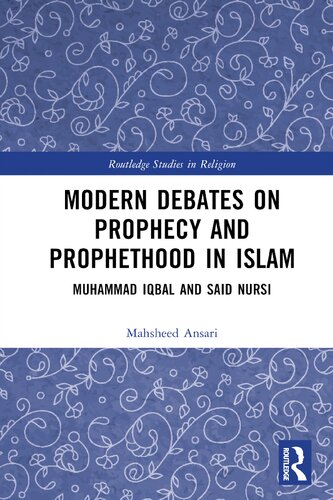

Most ebook files are in PDF format, so you can easily read them using various software such as Foxit Reader or directly on the Google Chrome browser.
Some ebook files are released by publishers in other formats such as .awz, .mobi, .epub, .fb2, etc. You may need to install specific software to read these formats on mobile/PC, such as Calibre.
Please read the tutorial at this link: https://ebookbell.com/faq
We offer FREE conversion to the popular formats you request; however, this may take some time. Therefore, right after payment, please email us, and we will try to provide the service as quickly as possible.
For some exceptional file formats or broken links (if any), please refrain from opening any disputes. Instead, email us first, and we will try to assist within a maximum of 6 hours.
EbookBell Team

4.3
38 reviewsWhile prophethood is the backbone of the Islamic tradition and an uncompromised tenet of faith, the impact of modernity with its ambivalent status afforded to the prophet and institution of prophethood shook many Muslim scholars. Through analysis of these modern debates on prophethood in Islam, this book situates Muhammad Iqbal’s (1877–1938) and Said Nursi’s (1877–1960) discourses within it and assesses their implications on the modern period. This book introduces the "what, who and how" of the prophets in the Islamic tradition. It unveils the rich Islamic literature of both the classical and modern periods and analyses the construction of their philosophies and theologies. Concise in both historical and textual analyses, this book makes an important contribution to our understanding of contemporary debates on prophecy and prophethood in Islam and will be of great interest to postgraduate students and researchers of Islam, religious studies, medieval studies and contemporary studies of Islam and religion.